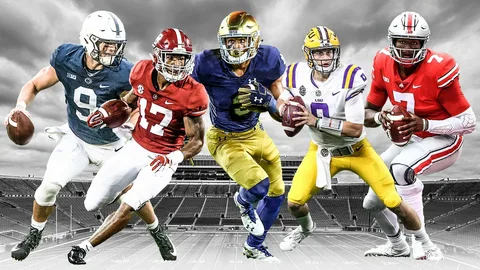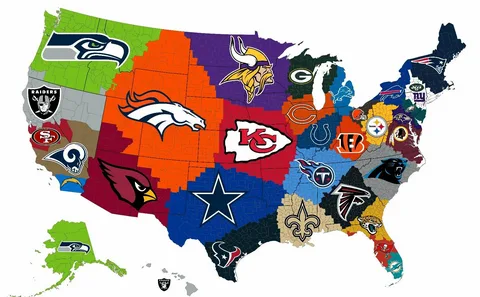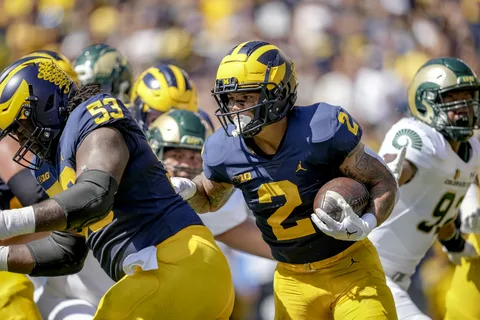
Will Argentina Dollarize
The prospect of dollarization in Argentina faces considerable challenges, as highlighted by financial experts such as Thierry Larose, a portfolio manager at Vontobel Asset Management in Zurich. Larose emphasized that, beyond the political hurdles, Argentina’s fragile economic condition makes dollarization an impractical and “terrible idea” in the near term.
Dollarization typically refers to the adoption of the U.S. dollar as the official currency of a country, replacing or coexisting with the national currency. While this strategy can provide stability in some cases, it requires a sound economic foundation and often involves significant political and social implications.
In the context of Argentina, where economic challenges have been prevalent, the consideration of dollarization as a remedy faces skepticism. Experts like Larose suggest that, given the current state of Argentina’s economy, pursuing dollarization would not be a feasible solution. The complexities involved in such a shift necessitate a careful evaluation of economic conditions, political dynamics, and potential long-term consequences before any decision can be made.
Will Argentina Beat Japan
The Japan rugby team is expected to face a challenging match against Argentina, where they are considered the underdog. Despite this, there is optimism about Japan’s chances to secure a victory with a predicted scoreline of 28–20. The key factors contributing to this potential outcome are believed to be Japan’s strong defense and effective tackling.
In rugby, the underdog status can sometimes work in a team’s favor, especially if they can capitalize on their strengths and exploit any weaknesses in the opposing team. Japan’s reputation for disciplined defense and skilled tackling may provide them with an opportunity to outperform expectations in the match against Argentina.
Rugby matches often hinge on a combination of strategic gameplay, individual skills, and team dynamics. Fans and analysts alike will be closely watching how Japan approaches the game and whether they can execute their game plan effectively against a formidable opponent like Argentina.
Will Argentina Ditch The Peso For The Dollar
Dollarization, or the adoption of the U.S. dollar as the official currency of a country, is viewed by some as a complex and challenging move for Argentina. According to Thierry Larose, a portfolio manager at Vontobel Asset Management in Zurich, the prospect of dollarization faces significant obstacles.
Larose emphasized that aside from political challenges, the current fragile state of Argentina’s economy makes it impractical to consider dollarization. The delicate economic conditions in the country, including issues such as inflation and fiscal concerns, create an unfavorable environment for such a transition. Larose described the idea of dollarization for Argentina as a “terrible idea” given the existing economic challenges.
Dollarization involves various implications, including a loss of control over monetary policy and potential challenges in adjusting to the economic dynamics of the United States. As Argentina navigates its economic landscape, discussions around currency and monetary policies remain critical, with experts offering diverse perspectives on the viability and consequences of dollarization.
Why Argentina Economy Collapse
Argentina’s experience with the convertibility plan provides valuable context for understanding the challenges associated with currency arrangements. The convertibility plan, implemented in the 1990s, was characterized by a currency board system rather than full dollarization.
The currency board system pegged the Argentine peso to the U.S. dollar at a fixed exchange rate, aiming to maintain stability and control inflation. However, the plan faced significant challenges. Large dollar-denominated external liabilities, coupled with economic imbalances, led to a scenario where investors started selling Argentine paper. The ensuing financial turbulence saw interest rates skyrocketing to unsustainable levels.
To address the economic turmoil, heavy capital controls were imposed. Despite these measures, the convertibility plan eventually collapsed, resulting in profound economic, social, and political dislocation. It’s important to note that the convertibility plan, while sharing some characteristics with dollarization, differed in its structure and mechanisms.
The episode highlights the complexities and risks associated with maintaining a fixed exchange rate, especially in the face of external economic pressures and imbalances. The aftermath of the convertibility plan’s collapse had a lasting impact on Argentina’s economic landscape, underscoring the importance of carefully considering the implications of currency arrangements.
Why Argentina Hate Nepal
January 2022, Argentina, like any other country, has its immigration policies and visa requirements. Visa regulations can change over time, so it’s essential to check the latest information from official sources or diplomatic representations.
It’s crucial to approach claims about flag burning or any other sensitive matters with caution. Such assertions may be based on isolated incidents or misinformation, and they may not represent the attitudes of an entire nation. Diplomatic relations between countries can be complex, and public sentiment varies widely among individuals.
To get accurate and up-to-date information about Argentina’s visa policies and the overall sentiment towards visitors, it’s recommended to check with the official government websites or contact the nearest Argentine embassy or consulate. Additionally, travel advisories and insights from fellow travelers who have recently visited Argentina can provide practical perspectives on the ground.
Who Argentina Head Coach
Lionel Sebastián Scaloni is an Argentine professional football manager and former player. Born in Pujato, Santa Fe, Scaloni made his debut as a player for Newell’s Old Boys in 1995. Throughout his playing career, Scaloni exhibited versatility, primarily operating as a right-back or right midfielder.
In addition to his club career, Scaloni earned recognition for his contributions to the Argentina national team. After retiring as a player, he transitioned into football management. As of my last knowledge update in January 2022, Scaloni was the coach of the Argentina national team.
For the latest and most accurate information about Lionel Scaloni’s current coaching role and any recent developments in his career, it is recommended to check official football governing body websites, reputable sports news outlets, or the official social media channels of the Argentina national football team.
Who Argentina Captain
January 2022, Lionel Andrés Messi, commonly known as Leo Messi, is an Argentine professional footballer who has played as a forward. Messi has had a storied career, primarily associated with FC Barcelona, where he became one of the greatest footballers of all time. He has won numerous individual awards, including multiple FIFA Ballon d’Or titles.
However, the information you provided about Messi playing for Major League Soccer (MLS) club Inter Miami was not accurate as of my last update. It’s important to note that player transfers and team affiliations can change, and I recommend checking the latest and most reliable sources, such as official club announcements or reputable sports news outlets, for the current status of Lionel Messi’s football career.
Please verify with up-to-date sources for the latest information on Lionel Messi’s current team and any recent developments in his football career.
Who Argentina Best Player
Lionel Andrés Messi, often hailed as one of the greatest footballers of all time, solidified his legendary status by securing a record seventh Ballon d’Or in 2021. Widely recognized for his extraordinary skills, exceptional vision, and goal-scoring prowess, Messi’s impact on the football world has been unparalleled.
Throughout his illustrious career, Messi has achieved numerous milestones, including multiple FIFA Ballon d’Or awards, which are presented annually to the world’s best player. His remarkable consistency, creativity on the field, and the ability to score goals in various ways have contributed to his status as an iconic figure in the sport.
It’s important to note that Messi’s career has seen significant changes, including a departure from FC Barcelona, the club where he spent the majority of his career, due to financial constraints faced by the club. As of my last knowledge update in January 2022, Messi joined Paris Saint-Germain (PSG) in August 2021.
For the latest and most accurate information about Lionel Messi’s career, current team, and achievements, it is recommended to check official announcements from football clubs, governing bodies, and reputable sports news outlets.
Who Argentina Records
Lionel Messi, the prolific Argentine forward, holds the record for the most goals scored in the national team, amassing an impressive tally of 106 goals as of 2005. Messi’s goal-scoring prowess has been a cornerstone of Argentina’s success on the international stage.
Regarding age-related records, Martín Palermo is recognized as the oldest goalscorer for Argentina. He achieved this feat at the age of 36 years and 7 months during a match against Greece in 2010. On the flip side, the title of the youngest goalscorer belongs to the legendary Diego Maradona, whose remarkable talents were evident from a young age.
These records highlight the rich history of Argentine football and the contributions of iconic players who have left an indelible mark on the sport. For the latest updates and potential changes to these records, it’s advisable to refer to official sources and reputable sports database
Who Argentina Fifa World Cup Record
Argentina boasts a rich history in the FIFA World Cup, establishing itself as one of the most successful teams in the tournament’s storied history. The national team has secured the coveted trophy on three occasions, triumphing in 1978, 1986, and most recently in 2022.
In addition to their World Cup victories, Argentina has reached the finals on three other occasions, finishing as the runner-up in 1930, 1990, and 2014. This consistent presence in the later stages of the tournament showcases Argentina’s footballing prowess and its ability to contend at the highest level.
The team’s overall World Cup performance is impressive, with 47 victories in 88 matches across 18 tournaments. These statistics underscore Argentina’s enduring legacy as a football powerhouse, contributing to the nation’s fervent passion for the sport. For the latest updates on Argentina’s World Cup journey, it’s advisable to check official FIFA records and reputable sports databases.






